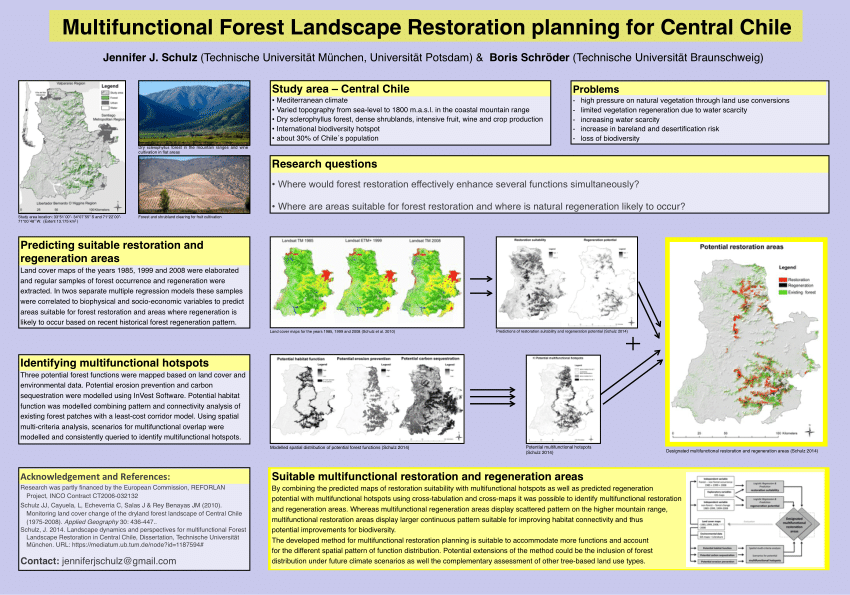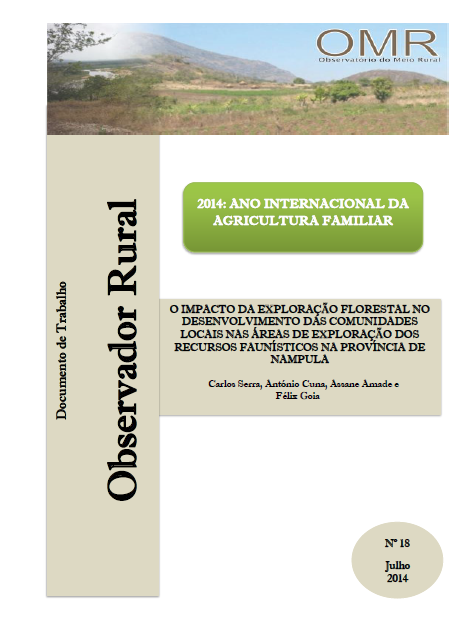Confronting the Food-Energy-Environment Trilemma : Global Land Use in the Long Run
Economic, agronomic, and biophysical
drivers affect global land use, so all three influences need
to be considered in evaluating economically optimal
allocations of the world's land resources. A dynamic,
forward-looking optimization framework applied over the
course of the coming century shows that although some
deforestation is optimal in the near term, in the absence of
climate change regulation, the desirability of further
PRONEA- Progeama Nacional de Educação Ambiental
A Educação Ambiental surge como política pública no
Brasil com o estabelecimento da Política Nacional
de Meio Ambiente – PNMA (Lei nº 6.938, de 1981),
no contexto da Conferência Intergovernamental de Educação Ambiental de Tbilisi (1977), que destacou o processo educativo como dinâmico, integrativo, permanente e transformador, justamente porque possibilita a aquisição de conhecimentos e habilidades de forma participativa. Desde então, outros marcos legais foram estabelecidos.
O impacto da exploração florestal no desenvolvimento das comunidades locais nas áreas de exploração dos recursos faunísticos na província de Nampula
A província nortenha de Nampula é rica em recursos naturais, com especial enfoque para os recursos florestais, explorados há vários anos por operadores nacionais e estrangeiros. Ao abrigo do quadro jurídico-legal sobre as florestas, deu-se início, a partir de 2005, a implementação da obrigação de canalização de 20% das taxas de exploração florestal e faunística, para as comunidades locais das áreas de exploração dos recursos naturais.
Greenhouse Gas Analysis at the World Bank
This report builds on reviews of
available methodologies, tools, and practices for greenhouse
gas (GHG) analysis, and summarizes the outcomes of pilot
studies. It discusses the issues and challenges associated
with GHG analysis for energy, transport and forestry
projects such as setting project boundaries and accounting
for indirect emissions. To do this it draws on existing
United Nations Framework Convention on Climate Change
Carbon Livelihoods : Social Opportunities and Risks of Carbon Finance
Global concerns about climate change
have led to the development of new market based mechanisms
aimed at reducing the concentration of greenhouse gases
(GHGs) in the atmosphere. These carbon trading schemes
enable countries or entities within countries to trade
'carbon credits' in order to increase the economic
efficiency of transitioning to a low carbon economy. A
sub-set of these markets involve the generation of carbon
Biodiversity, Ecosystem Services, and Climate Change : The Economic Problem
Climate change is both a cause and an
effect of biodiversity change. Along with anthropogenic
dispersion, climate change is the main driver of change in
the geographical distribution of both beneficial and harmful
species, crops, livestock, harvested wild species, pests,
predators and pathogens. And the capacity of ecosystems to
adapt to climate change depends on the diversity of species
they currently support. This paper considers the connection
Measuring Up : New Directions for Environmental Programs at the World Bank
The World Bank's new environment
strategy advocates cost-effective reduction of air and water
pollutants that are most harmful to human health. In
addition, it addresses threats to the livelihood of over one
billion people who live on fragile lands-lands that are
steeply sloped, arid, or covered by natural forests. The new
approach will require accurate information about
environmental threats to health and livelihood, as well as
Hunting of Wildlife in Tropical Forests : Implications for Biodiversity and Forest Peoples
The study addresses the importance of
wildlife to people, and as a resource of nutritional,
economic, and socio-cultural values, and examines the
complexities of hunting in tropical forests. It also
expresses that today, such hunting is rarely sustainable,
because of declining forest areas, which decreases wildlife
populations; because of changes among human populations in
the tropical forests, who have increasingly become more
Impact of Costa Rica's Program of Payments for Environmental Services on Land Use
Costa Rica's Program of Payments
for Environmental Services (Pago de Servicios Ambientales,
PSA) provides a unique opportunity to evaluate direct
payments as a conservation policy tool. This paper reports
evidence on how much more forest has been conserved in Costa
Rica as a result of PSA contracts with landowners. Such
evidence requires estimating a counterfactual outcome: how
much forest would have been preserved if there had been no
Brazil's Experience with Payments for Environmental Services
Since 2006, there has been an explosion
of Payments for Environmental Services (PES) projects in
Brazil, as well as efforts to pass PES laws at federal,
state, and municipal levels. Even in this short period, an
extraordinarily rich range of experiences has developed,
with examples of the application of PES at a variety of
scales, ranging from microwatersheds to entire states; in a
variety of contexts, from remote forest frontier areas to
Implementation of REDD+ Mechanisms in Tanzania
This paper explains the major issues and
lessons derived from the national forest management program
and REDD+ initiatives in Tanzania. It finds that addressing
the most important drivers of forest degradation and
deforestation, in particular the country energy needs and
landownership, is essential for success in reducing
emissions regardless of the type of program implemented. It
also finds that, through the national program, forest users




